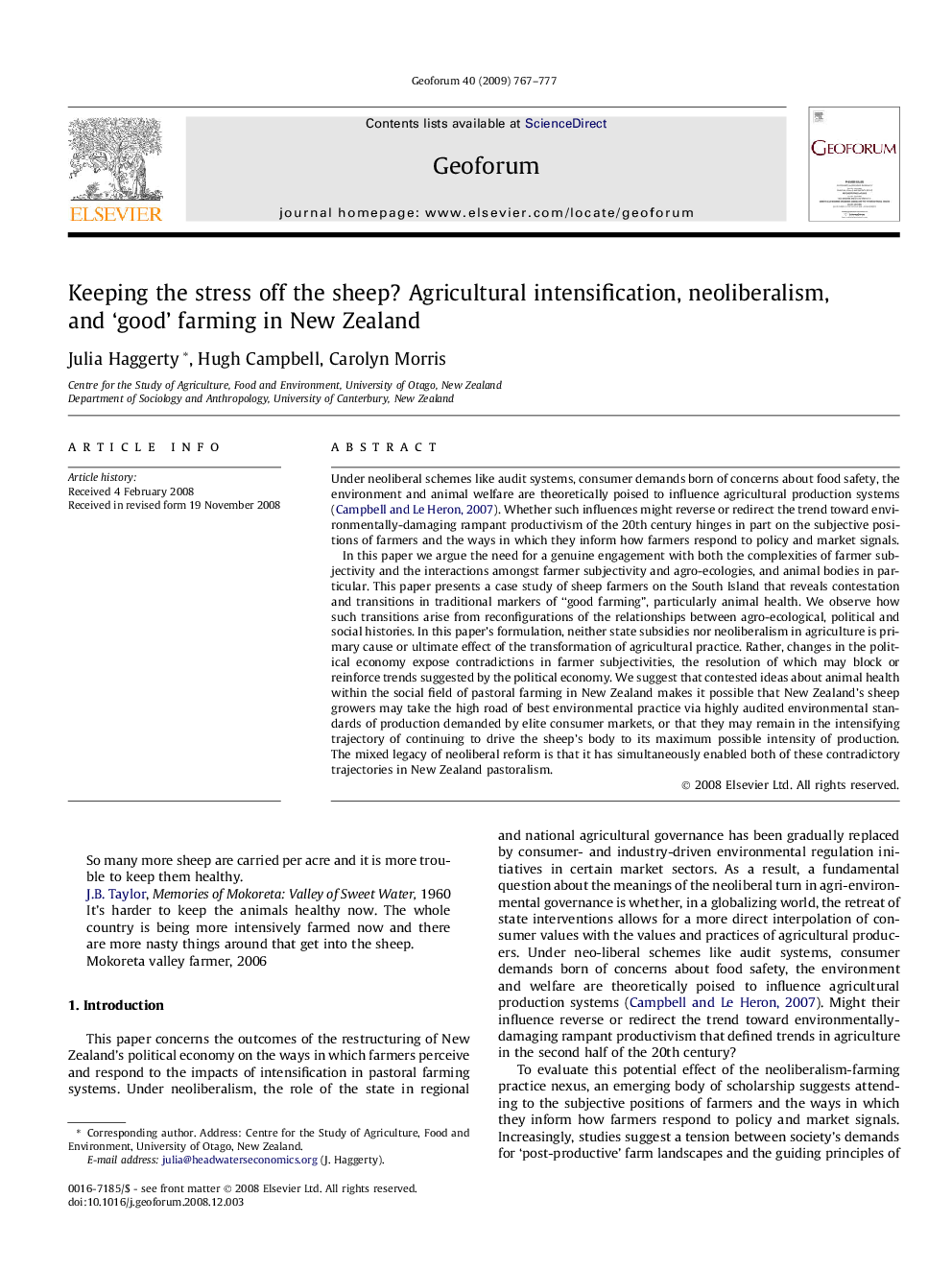| Article ID | Journal | Published Year | Pages | File Type |
|---|---|---|---|---|
| 5074811 | Geoforum | 2009 | 11 Pages |
Abstract
In this paper we argue the need for a genuine engagement with both the complexities of farmer subjectivity and the interactions amongst farmer subjectivity and agro-ecologies, and animal bodies in particular. This paper presents a case study of sheep farmers on the South Island that reveals contestation and transitions in traditional markers of “good farming”, particularly animal health. We observe how such transitions arise from reconfigurations of the relationships between agro-ecological, political and social histories. In this paper's formulation, neither state subsidies nor neoliberalism in agriculture is primary cause or ultimate effect of the transformation of agricultural practice. Rather, changes in the political economy expose contradictions in farmer subjectivities, the resolution of which may block or reinforce trends suggested by the political economy. We suggest that contested ideas about animal health within the social field of pastoral farming in New Zealand makes it possible that New Zealand's sheep growers may take the high road of best environmental practice via highly audited environmental standards of production demanded by elite consumer markets, or that they may remain in the intensifying trajectory of continuing to drive the sheep's body to its maximum possible intensity of production. The mixed legacy of neoliberal reform is that it has simultaneously enabled both of these contradictory trajectories in New Zealand pastoralism.
Related Topics
Social Sciences and Humanities
Economics, Econometrics and Finance
Economics and Econometrics
Authors
Julia Haggerty, Hugh Campbell, Carolyn Morris,
